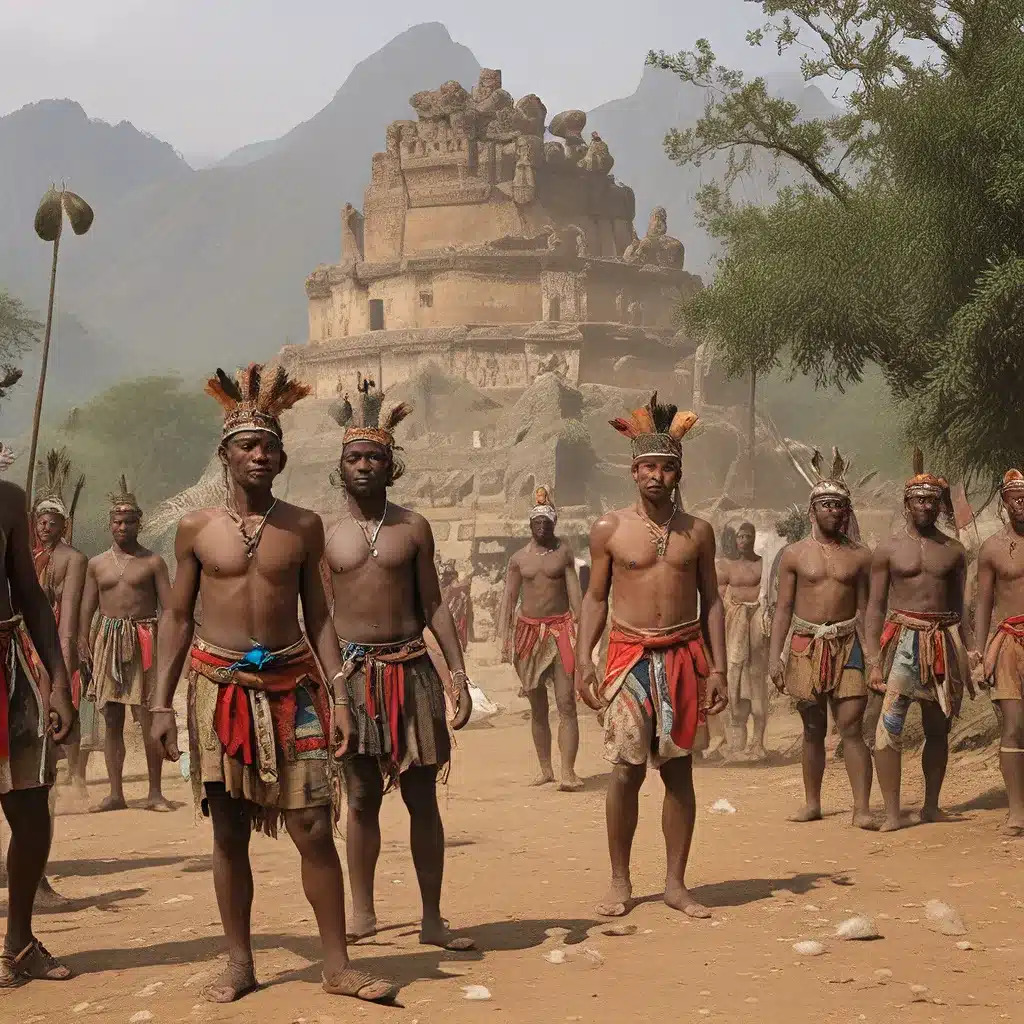
In the vast tapestry of human history, there are countless stories waiting to be uncovered – tales of ancient civilizations, their beliefs, and their profound connections to the natural world. As we delve deeper into the archaeological record, we are often confronted with perspectives that challenge our own preconceptions and invite us to rethink our understanding of the past.
Exploring the Diversity of Death Rituals
One such area of exploration is the concept of death and its significance across different cultures. While Western, Judeo-Christian traditions have long been dominant in shaping our collective understanding of mortality, a closer look reveals a rich diversity of perspectives on the nature of life and death.
In the Yukon First Nations worldview, for example, the act of hunting and killing animals is not viewed through the lens of control and domination, but rather as a reciprocal social relationship between humans and the natural world. The observance of food taboos, ritual feasts, and prescribed methods for disposing of animal remains are all integral parts of this cultural framework, which emphasizes the importance of upholding responsibilities and maintaining a harmonious connection with the animal kingdom.
In contrast, the Judeo-Christian tradition often associates death with a sense of fear and dread, a “fear of the beyond” that stems from the notion of an afterlife where one’s morality is weighed and the prospect of eternal misery looms. This perspective has been deeply embedded in Western art, literature, and philosophical thought, shaping our collective understanding of the moral implications of taking a life.
Reframing the Human-Animal Relationship
These divergent worldviews on death and the human-animal relationship have profound implications for how we approach the ethics of killing animals and using them for our own purposes. The cultural centrism that often permeates these discussions can blind us to the diversity of ethical perspectives that exist in the world, leading to a limited and potentially biased understanding of the issue.
As we engage in these conversations, it is crucial to recognize that our individual and collective understandings of concepts like death, killing, and the relationship between humans and animals are heavily influenced by our cultural backgrounds. By acknowledging this diversity, we open ourselves up to a more nuanced and inclusive dialogue, one that embraces the richness of human experiences and perspectives.
Reconnecting with the Natural World
Moreover, the way we conceptualize our connection to the natural world, and the role of animals within it, can have significant implications for conservation efforts and our overall stewardship of the environment. In a Western, anthropocentric worldview, the natural world is often seen as a resource to be controlled and exploited, with human interests taking precedence. However, in cultures where humans and animals are viewed as interconnected and interdependent, the imperative to protect and respect the natural world becomes more pronounced.
By exploring the diverse cultural perspectives on the human-animal relationship, we can gain a deeper appreciation for the nuances and complexities that underlie our ethical decision-making. This, in turn, can inform more thoughtful and responsible approaches to conservation, environmental stewardship, and our overall relationship with the natural world.
Uncovering Ancient Wisdom
As we delve into the rich tapestry of ancient civilizations, we are often struck by the depth and sophistication of their understanding of the natural world. From the Mesopotamian reverence for the sacred groves to the Aztec veneration of the jaguar, these cultures offer a window into alternative perspectives on the human-animal relationship that can challenge and enrich our own worldviews.
Scholars have explored how ancient religious and spiritual practices often incorporated a deep respect for the natural world, recognizing the intrinsic value of animals and their role in the balance of ecosystems. These insights can inform our modern approaches to environmental stewardship and help us reconnect with the primal rhythms of the world around us.
Embracing Diverse Perspectives
As we continue to uncover the rich tapestry of human history, it is crucial that we approach our understanding of the past with an open and inclusive mindset. By acknowledging the diversity of cultural perspectives on the human-animal relationship and the ethical implications of killing and using animals, we can move beyond the cultural centrism that has often dominated these discussions.
This reexamination of forgotten cultures and their worldviews can not only deepen our understanding of the past, but also inform our present-day decisions and guide us towards a more sustainable and harmonious relationship with the natural world. By embracing the primal perspectives that have been marginalized or overlooked, we can expand the boundaries of our own ethical frameworks and cultivate a richer, more holistic understanding of our place in the grand tapestry of life**.
As we stand at the crossroads of our collective history, let us approach the lessons of the past with humility and openness, valuing the diversity of human experience and drawing inspiration from the primal perspectives that have long shaped the human-animal relationship.


